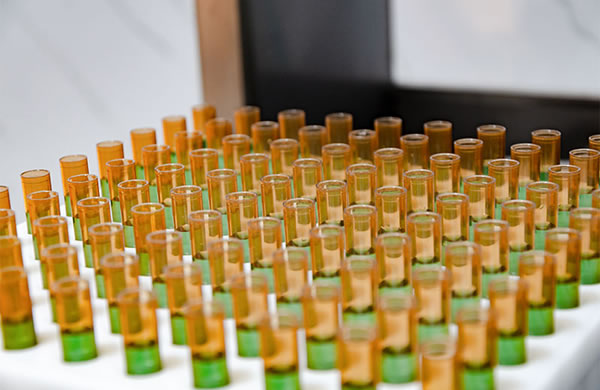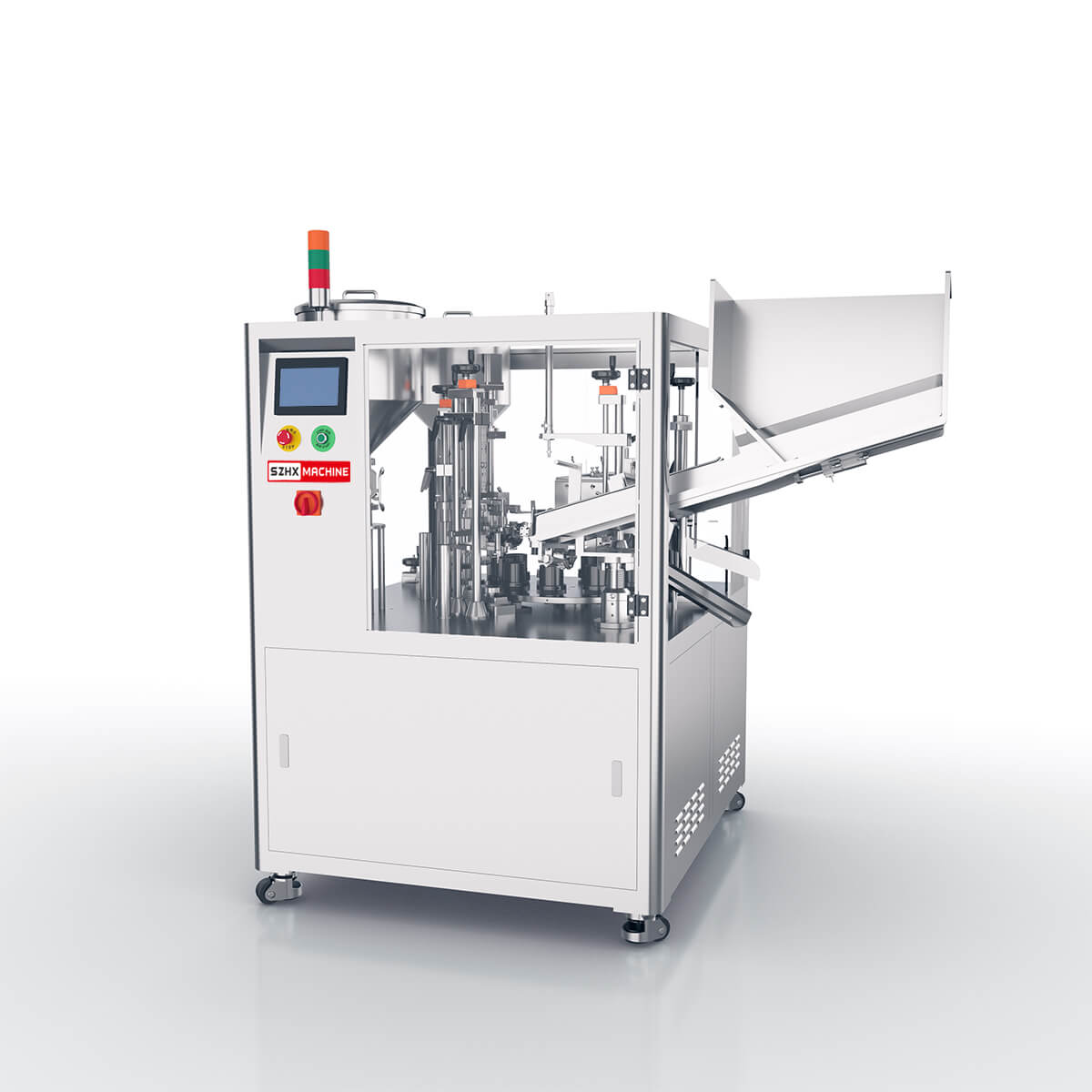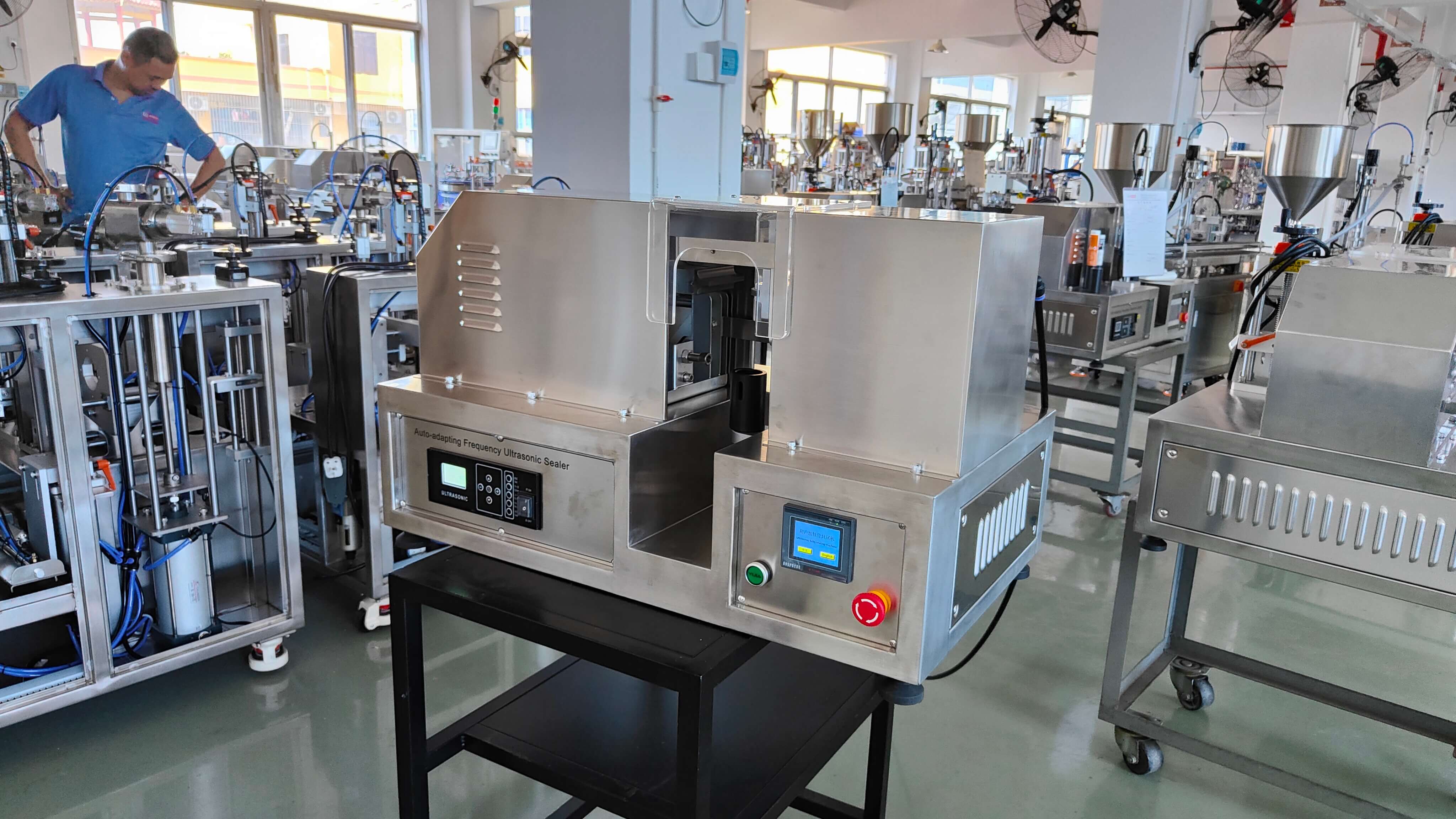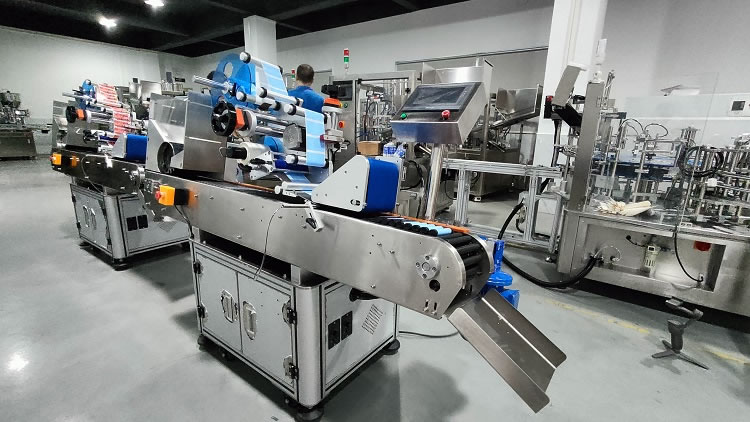How Can the Cosmetics Industry Improve Production Efficiency?
Introduction
In the highly competitive cosmetics industry, improving production efficiency is not just a goal—it’s a necessity. With increasing consumer demands, stringent regulatory requirements, and the constant push for innovation, cosmetics manufacturers must continuously seek ways to enhance their production processes. Efficiency in production directly impacts a company’s bottom line, influencing everything from cost management to product quality and speed to market. This article explores various strategies that the cosmetics industry can employ to improve production efficiency, ensuring long-term success and sustainability.

Understanding Production Efficiency in the Cosmetics Industry
Defining Production Efficiency in Cosmetics
Production efficiency in the cosmetics industry refers to the optimal use of resources, including materials, labor, and machinery, to produce high-quality products at a lower cost. This efficiency is measured by how well a company can maximize output while minimizing waste, time, and costs. For cosmetics manufacturers, achieving high production efficiency means being able to produce more products, faster, without compromising on quality.
The Impact of Efficiency on Business Success
Efficiency is a critical determinant of business success in the cosmetics industry. Companies that can produce goods more efficiently are better positioned to meet market demand, offer competitive pricing, and invest in innovation. Moreover, efficient production processes reduce operational costs, which can be reinvested into other areas of the business, such as research and development or marketing, thereby driving overall growth and profitability.
Challenges in Achieving High Production Efficiency
The Complexity of Product Formulations
One of the primary challenges in achieving high production efficiency in the cosmetics industry is the complexity of product formulations. Cosmetics products often contain a wide range of ingredients, each with specific handling, mixing, and storage requirements. This complexity can slow down production processes, increase the likelihood of errors, and make it difficult to scale up production efficiently.
Managing High Product Variety and Customization
Today’s consumers demand a wide variety of cosmetics products, from different shades and textures to personalized formulations. While this variety is great for meeting consumer needs, it presents a significant challenge for manufacturers. Managing multiple product lines and frequent changeovers can lead to inefficiencies in production, particularly if the processes are not optimized for flexibility and quick adjustments.
Regulatory Compliance and Quality Control Demands
The cosmetics industry is subject to strict regulatory requirements, covering everything from ingredient safety to labeling and packaging standards. Compliance with these regulations is essential but can also be a barrier to achieving high production efficiency. Quality control processes must be rigorous and thorough, which can slow down production if not properly integrated into the overall manufacturing process.
Technology as a Catalyst for Efficiency
Automation in Cosmetic Manufacturing
Automation has become a game-changer in the cosmetics industry, offering significant improvements in production efficiency. Automated systems can handle tasks such as mixing, filling, and packaging with greater precision and speed than manual processes. By reducing the reliance on manual labor, automation minimizes human error, increases consistency, and allows for faster production cycles, all of which contribute to improved efficiency.
The Role of Artificial Intelligence in Streamlining Processes
Artificial Intelligence (AI) is increasingly being used to streamline production processes in the cosmetics industry. AI algorithms can analyze large amounts of data to optimize production schedules, predict maintenance needs, and even identify potential quality issues before they arise. By leveraging AI, cosmetics manufacturers can make more informed decisions, reduce downtime, and improve overall production efficiency.
Utilizing IoT for Real-Time Monitoring and Process Optimization
The Internet of Things (IoT) enables real-time monitoring and control of production processes, providing manufacturers with valuable data on machine performance, energy consumption, and product quality. This data can be used to identify inefficiencies, optimize production processes, and make adjustments in real-time, leading to significant improvements in production efficiency.
Optimizing Manufacturing Processes
Lean Manufacturing Principles in the Cosmetics Industry
Lean manufacturing is a methodology focused on reducing waste and maximizing efficiency. In the cosmetics industry, lean practices can be applied to streamline production processes, reduce lead times, and improve overall product quality. By adopting lean manufacturing principles, cosmetics companies can eliminate inefficiencies, reduce costs, and increase their ability to respond quickly to market demands.
The Benefits of Continuous Manufacturing Over Batch Processing
Traditionally, cosmetics manufacturing has relied on batch processing, where products are made in discrete batches. However, continuous manufacturing, where production runs continuously, offers significant efficiency gains. Continuous manufacturing reduces downtime between batches, improves product consistency, and allows for more efficient use of resources. While transitioning to continuous manufacturing may require significant investment, the long-term benefits in terms of efficiency and cost savings are substantial.
Importance of Selecting the Right Tube Filling and Sealing Machine
Choosing the right tube filling and sealing machine is crucial for improving production efficiency in the cosmetics industry. The right machine can handle a variety of product formulations, provide consistent filling volumes, and ensure a strong, leak-proof seal, all while minimizing downtime and reducing waste. For a detailed guide on how to choose the best tube filling and sealing machine for your needs, you can refer to this resource for more information.
Enhancing Supply Chain Efficiency
Effective Supplier Management and Collaboration
Efficient production starts with a well-managed supply chain. Cosmetics manufacturers must work closely with their suppliers to ensure a consistent supply of high-quality raw materials. By building strong, collaborative relationships with suppliers, companies can improve communication, reduce lead times, and respond more quickly to changes in demand, all of which contribute to improved production efficiency.
Implementing Just-in-Time Inventory Practices
Just-in-Time (JIT) inventory practices are designed to reduce waste and improve efficiency by producing goods only as they are needed. In the cosmetics industry, JIT can be particularly effective in minimizing the storage of perishable ingredients and reducing the risk of overproduction. However, successful implementation of JIT requires a highly efficient and reliable supply chain, as any delays can disrupt production and reduce overall efficiency.
Reducing Lead Times Through Improved Logistics
Reducing lead times is another key strategy for improving production efficiency. By optimizing logistics and supply chain management, cosmetics manufacturers can ensure that raw materials and finished products move through the production process as quickly and efficiently as possible. This can be achieved through better planning, more efficient transportation methods, and the use of advanced technologies such as AI and IoT for real-time tracking and monitoring.
Quality Control and Assurance Measures
Implementing Advanced Quality Management Systems
A robust Quality Management System (QMS) is essential for ensuring that cosmetics products meet the required standards and are safe for consumers. By implementing an advanced QMS, manufacturers can monitor and control every aspect of production, from raw material sourcing to the final product. This not only ensures consistent product quality but also contributes to improved production efficiency by reducing the need for rework and minimizing the risk of product recalls.
Utilizing Data Analytics for Predictive Quality Control
Data analytics is becoming an increasingly valuable tool in quality control. By analyzing production data, manufacturers can identify patterns and trends that may indicate potential quality issues. Predictive analytics can help manufacturers address these issues before they lead to defects, improving overall efficiency and reducing waste. This proactive approach to quality control can also help manufacturers stay ahead of regulatory requirements and maintain compliance with industry standards.
Ensuring Compliance with Regulatory Standards
Compliance with regulatory standards is a critical aspect of production efficiency in the cosmetics industry. Automated systems can help manufacturers ensure compliance by tracking and documenting every step of the production process. These systems can generate reports and alerts to notify manufacturers of any potential compliance issues, allowing them to take corrective action quickly. By integrating compliance into the overall production process, cosmetics companies can avoid costly fines and disruptions, while also improving overall efficiency.
Sustainable Practices for Long-Term Efficiency
Integrating Eco-Friendly Materials and Processes
Sustainability is an increasingly important consideration in the cosmetics industry. Consumers are demanding more environmentally friendly products, and manufacturers are responding by adopting sustainable practices. This includes using renewable energy sources, reducing water and energy consumption, and minimizing waste. By incorporating sustainable practices into their production processes, cosmetics companies can not only improve efficiency but also enhance their brand reputation and appeal to eco-conscious consumers.
Reducing Energy and Resource Consumption
Reducing energy and resource consumption is another key aspect of sustainable production. Cosmetics manufacturers can achieve this by implementing energy-efficient technologies, optimizing production processes, and adopting practices such as water recycling and waste minimization. By reducing their environmental footprint, companies can improve production efficiency while also contributing to a more sustainable future.
Waste Management and Recycling Initiatives
Effective waste management and recycling initiatives are essential for improving production efficiency in the cosmetics industry. By reducing waste at every stage of the production process, from raw material sourcing to packaging and distribution, manufacturers can lower costs and improve overall efficiency. Recycling initiatives, such as reusing packaging materials or repurposing waste products, can also contribute to a more sustainable production process and reduce the environmental impact of cosmetics manufacturing.
Training and Workforce Development
Upskilling Employees for Technological Integration
As the cosmetics industry becomes more reliant on advanced technologies, the need for a skilled workforce becomes increasingly important. Upskilling employees to work with new technologies, such as automation and AI, can lead to significant improvements in production efficiency. By investing in training programs that focus on technological integration, manufacturers can ensure that their workforce is equipped with the skills and knowledge needed to operate efficiently in a rapidly evolving industry.
Promoting a Culture of Continuous Improvement
Continuous improvement is a key principle of efficient production. By fostering a culture that encourages employees to identify and implement improvements, cosmetics manufacturers can achieve incremental gains in efficiency over time. This culture should be supported by regular training, open communication, and recognition of employees who contribute to process improvements. By promoting a culture of continuous improvement, companies can stay competitive and adapt to changing market conditions.
Implementing Comprehensive Training Programs
Comprehensive training programs are essential for ensuring that employees are equipped with the skills and knowledge they need to operate efficiently. These programs should be tailored to the specific needs of the company and its workforce, focusing on areas such as technology integration, quality control, and regulatory compliance. By providing employees with ongoing training and development opportunities, cosmetics manufacturers can improve production efficiency and ensure long-term success.
Leveraging Data and Analytics
The Role of Big Data in Production Planning
Big Data is playing an increasingly important role in production planning in the cosmetics industry. By analyzing large volumes of data, manufacturers can gain valuable insights into production trends, consumer preferences, and market demand. This information can be used to optimize production schedules, reduce waste, and improve overall efficiency. By leveraging Big Data, cosmetics manufacturers can make more informed decisions and stay ahead of the competition.
Predictive Maintenance for Reduced Downtime
Predictive maintenance is another key strategy for improving production efficiency. By using data analytics to monitor machine performance and predict maintenance needs, manufacturers can reduce downtime and prevent costly breakdowns. Predictive maintenance can also help extend the lifespan of equipment, reduce repair costs, and improve overall production efficiency. By adopting predictive maintenance practices, cosmetics manufacturers can ensure that their production processes run smoothly and efficiently.
Integrating ERP Systems for End-to-End Efficiency
Enterprise Resource Planning (ERP) systems are essential for achieving end-to-end efficiency in the cosmetics industry. These systems integrate all aspects of production, from raw material sourcing to final product distribution, providing manufacturers with real-time visibility and control over their operations. By integrating ERP systems, cosmetics companies can streamline their processes, reduce waste, and improve overall efficiency. ERP systems also provide valuable data and insights that can be used to drive continuous improvement and stay competitive in a rapidly changing market.
Conclusion
Improving production efficiency is critical for the long-term success and sustainability of cosmetics manufacturers. By leveraging advanced technologies, optimizing manufacturing processes, and adopting sustainable practices, companies can enhance their efficiency, reduce costs, and improve product quality. Investing in employee training and development, as well as leveraging data and analytics, are also essential strategies for achieving high production efficiency. As the cosmetics industry continues to evolve, companies that prioritize efficiency will be better positioned to meet market demands, stay competitive, and achieve long-term success.



